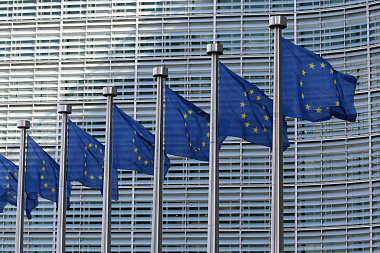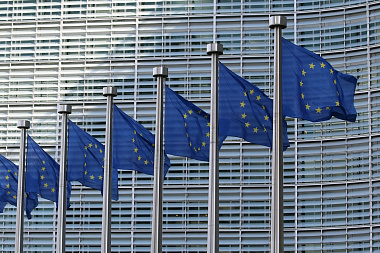Background
The competent national authorities of EU member states are responsible for ensuring compliance with EU sanctions. For quite some time, though, each EU member state has independently set penalties for sanctions violations, which has led to marked differences in the level of liability and the penalties imposed by individual countries:- Currently, a sanction violation is always a criminal offence in 12 EU member states, may be treated as an administrative offence in 13 member states and is always an administrative offence in two member states;
- The criteria for treating a violation as a criminal or administrative offence, like the penalties involved, differ in each EU member state (for example, the maximum prison term varies from two to 12 years).
On 9 June 2023, the EU Council announced that it had reached agreement on a draft directive concerning the criminalisation of certain violations of EU sanctions. This draft formed the basis of the Directive, though certain provisions have been modified.
Criminal offences under the Directive
The Directive calls on EU member states to criminalise the following intentionallyOr committed with “serious negligence” in relation to the conduct indicated in clause 5 below, including where such conduct involves military items included in the Common Military List of the European Union or dual-use items listed in annexes I and IV to Regulation (EU) 2021/821 committed offences:- making funds or economic resources available, directly or indirectly, to or for the benefit of a person, entity or body subject to sanctions (“Sanctioned person”) in violation of a prohibition constituting an EU restrictive measure;
- failing to freeze funds or economic resources belonging to or owned, held or controlled by a Sanctioned person in violation of an obligation constituting an EU restrictive measure;
- enabling Sanctioned natural persons to enter into or transit through the territory of an EU member state in violation of a prohibition constituting an EU restrictive measure;
- entering into or continuing transactions with a third country, a body of a third country or an entity or body owned or controlled by a third country or by its body, including the award or continued execution of public or concession contracts, where the prohibition or restriction of such conduct constitutes an EU sanction;
- trading, importing, exporting, selling, purchasing, transferring, transiting or transporting goods, as well as providing brokering services, technical assistance or other services relating to those goods, in violation of prohibitions or restrictions constituting an EU restrictive measure;
- providing financial services or performing financial activities prohibited or restricted by EU restrictive measures;
- providing other services prohibited or restricted by EU restrictive measures;
- circumventing EU restrictive measures by:
- using, transferring to a third party or otherwise disposing of funds or economic resources that are owned, held or controlled by a Sanctioned person and are to be frozen under EU restrictive measures for purposes of concealment;
- providing false or misleading information in order to conceal the fact that a Sanctioned person is the ultimate owner or beneficiary of funds or economic resources to be frozen under EU restrictive measures;
- failing by a Sanctioned natural person or his/her representative to comply with an obligation under EU restrictive measures to report to the competent administrative authorities, funds or economic resources within the jurisdiction of an EU member state, belonging to or owned, held or controlled by such person;
- failing to comply with an obligation under EU restrictive measures to provide the competent administrative authorities with information obtained during the performance of professional duties on frozen assets or economic resources belonging to or owned, held or controlled by Sanctioned persons in EU member states or information on funds or economic resources that have not been frozen.
- breaching or failing to fulfill conditions under authorizations granted by competent authorities to conduct activities that, without such an authorisation licence, are prohibited or restricted by EU restrictive measures.
At the same time, the Directive calls for the criminalisation of only serious sanctions violations. Most of the above actsOffences stipulated in clauses 1, 2, 4, 7, 8 and 9 above should not be treated as criminal offences if they involve funds, economic resources, goods, services, transactions or activities of a value less than EUR 10,000.
Penalties for violating EU sanctions
The Directive requires EU member states to ensure that penalties are effective, proportionate and dissuasive and envisages the following penalties, depending on the severity of the offence:- Natural persons may be held criminally liable in the form of imprisonment for a term of one to five years as well as receive related criminal and non-criminal penalties (fines, disqualification from holding senior positions in companies, withdrawal of permits and authorisations, etc.);
- Legal persons may be held criminally liable if offences were committed for their benefit by any person holding a senior position with such legal person. Penalties consist largely of a fine of at least 5% of the legal person’s total annual worldwide turnover or at least EUR 40 million. EU member states may also set additional criminal or non-criminal penalties (for example, disqualification from the practice of business activities, judicial winding-up, closure of establishments used for committing the criminal offence, etc.).
Jurisdiction of EU member states
An EU member state has jurisdiction over an offence if:- the criminal offence was committed in whole or in part within its territoryIncluding on board a ship or aircraft registered in the EU member state or flying its flag (regardless of the offender’s citizenship); or
- the offender is a national of such state (regardless of where the offence was committed).
- the offender is a habitual resident in its territory;
- the offender is one of its officials acting in his or her official duty;
- the offence is committed for the benefit of a legal person established in its territory;
- the offence is committed for the benefit of a legal person in respect of any business done in whole or in part in its territory.
Other provisions of the Directive
The Directive also prescribes:- circumstances that may be regarded as:
- mitigating (for example, assisting the competent authorities by providing information or helping them to identify other offenders); or
- aggravating (for example, the use of false or forged documents and the commission of an offence in the framework of a criminal organisation or by a person performing a public function);
- the need for measures to freeze and confiscate instrumentalities and proceeds from offences, including inciting, aiding, abetting and attempting to commit such offences;
- a limitation period for a violation of EU sanctions of at least five yearsIn some cases, EU member states may set a period of limitation shorter than five years, but not shorter than three years when the maximum penalty is imprisonment for at least five years.
Next steps and import of the Directive
The EU Directive requires member states to incorporate the Directive’s provisions in their national legislation within one year (i.e., by 20 May 2025).Ensuring compliance with EU sanctions will remain the prerogative of member states, but the Directive will ensure a consistent approach to the implementation of EU sanctions and unify the minimum requirements and rules for determining criminal offences as well as the minimum level of liability to be observed by all member states.
The EU has recently been intensifying its efforts to counter violations and attempted circumvention of EU sanctions, and the Directive is another step in that direction. In our view, the adoption of this Directive and its subsequent implementation by EU member states may lead to even stringer compliance by European counterparties and discourage them from entering into transactions that could entail criminal liability.









